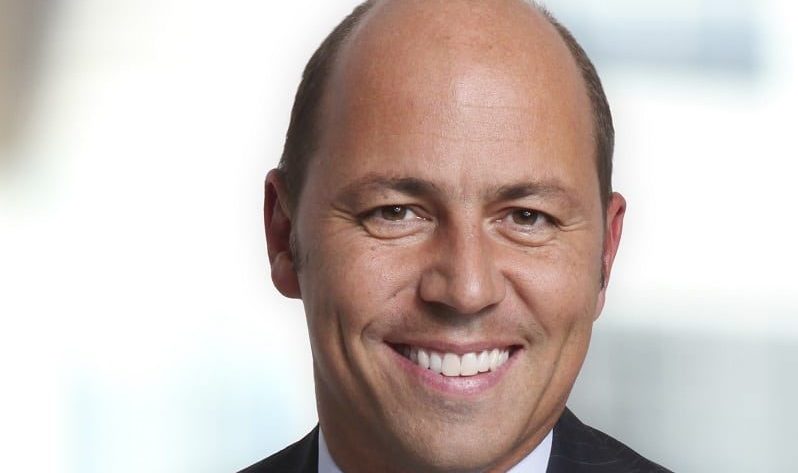Axa Investment Managers reported net outflows of €6bn (£5.2bn) for 2018 after losing out on a key mandate and being hit by negative flows from its Asian joint ventures.
In its full year results for the 12 months to 31 December 2018, the firm said €3bn of positive flows into its alternatives, multi-asset and fixed income strategies were overshadowed by gross outflows over the period of €9bn.
The French fund group said redemptions were driven by “the loss of a large mandate” and clients pulling money from its Asian joint-ventures, which it said was mainly a consequence of large and low-margin alternative products from China joint-ventures reaching maturity and changes to the local regulatory requirements in 2018.
While Axa IM did not name the large mandate in question, early last year it was booted off the £3bn SJP Balanced Managed Unit Trust mandate after 11 years.
Assets under management fell to €730bn, down from €746bn at the end of December 2017, after factoring in negative market effects and net outflows. Revenues were also down 3% from €1.28bn to €1.25bn.
Andrea Rossi (pictured), CEO of Axa IM, said the group demonstrated “resilience in 2018”, with an increase in underlying earnings despite challenging and volatile market conditions.
Earnings increased by 6% to €270m, driven by lower financial charges, lower income tax expenses mainly linked to higher real estate performance fees as well as higher earnings from Asian joint-ventures.
“To deliver on our ambitions, we continue to focus and accelerate growth in areas of strength, while further leveraging our AXA experience for the benefit of third-party clients,” he said.
“I am convinced that the significant steps we took to transform our company in 2018 will bear fruit, enabling us to better adapt our solutions to our clients’ evolving needs.”
Record year for alternatives
Axa IM’s successes for 2018 were largely seen in the alternatives space, with a record year for structured finance which saw inflows raised from third party institutional investors and family offices in Europe, Northern America and Asia.
This was driven by the closing of five CLOs (in Europe and the US) representing €2.1bn, and money coming into areas such as Dutch Mortgages, global secured assets, insurance-linked securities (ILS) and regulatory capital.
In 2019 the group hopes to leverage its strategic partnership with Capzanine to complete its product range within direct lending in Europe to small and mid-sized companies.
ESG
Axa IM highlighted its commitment to integrate ESG across its open-ended funds range in 2019 by applying the newly defined ESG Standards. Its ESG integrated assets are €458bn.
Companies with a low ESG score, according to Axa IM, or those severely breaching UN Global Compact principles, relating to areas such as tobacco, coal and defense will be excluded from all open-ended funds.
Axa IM Rosenberg Equities was last year selected to run an advisory $1bn Global Equity ESG portfolio for CalPERS.
In 2019, this platform will be launching a UN SDG-aligned strategy focused on companies that help mitigate climate change or improve transition to sustainable energy sources.
Rossi said: “We have identified certain sectors in which we will not invest, above a certain exposure threshold to help minimise downside risk. Our ESG standards form just one dimension of our approach, and we also plan to enhance our engagement and stewardship to help influence business models of companies to anticipate future changes such as climate change.
“Our integration approach includes ESG corporate analysis, scoring, voting and also training for all staff.”
Additionally, Axa IM will provide its clients with reporting on ESG scoring and the carbon footprint for its funds and will pursue further SRI labellisation of some additional strategies in France.
Promoting diversity
Axa IM reiterated its commitment to “building a better tomorrow for clients and society at large”.
It has taken actions to promote diversity, inclusion and education from the recent partnership with fintech company Dreams, helping millennials bring their projects to life through simple saving and investing.
Other initiatives include “Girls Who invest” in the US, a project aimed to encourage more women to take investment roles, partnering with KickStart Money in the UK to transform the long-term savings behaviour of kids and PolECule in Germany to teach school students political and economic knowledge in both German and English.
The group said it is also actively taking steps to tackle gender diversity and representation of women in senior asset management positions and investment roles. It has already signed the UK Women in Finance Charter, publicly pledging to reach a target of 40% of senior executive women in its global population by 2020. Currently 35% of its senior executives are women.











